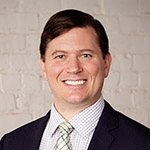The plaintiff filed a Complaint alleging she was injured in a March 23, 2013, automobile accident. In her initial expert disclosure, the plaintiff identified a single doctor as her only damages expert. The doctor had never treated the plaintiff and the plaintiff hired him specifically for this litigation. According to the plaintiff’s designation, the doctor would testify that the accident caused the plaintiff serious permanent injuries resulting in a 27% whole person impairment. Although the accident occurred in Virginia and the plaintiff brought her case in Virginia, the plaintiff’s expert doctor was licensed only in Maryland.
Early in its investigation of the case, the defendant discovered that, before the accident, the Maryland Board of Physicians entered into a Consent Order with the doctor. The Consent Order recited numerous findings of fact, including the following:
- The doctor consistently billed patients for treatment that was not clinically indicated or actually performed
- The doctor performed medical procedures with little or no clinical indications for such treatment
- The doctor provided treatment that did not correspond with diagnostic findings
- The doctor failed to properly document his treatment
- The doctor over-utilized certain therapies
The Plaintiff’s Motion
During his deposition of the doctor, the defendant asked him numerous questions about the Consent Order. The doctor refused to answer any such questions. Afterwards, the plaintiff filed a motion to limit the defendant from conducting any discovery into the doctor’s disciplinary record and from introducing any such evidence into trial.
In support of her motion, the plaintiff argued that Section 14-410 of the Maryland Health Occupations Article bars the use of any Board evidence at trial. The plaintiff also pointed to a published case in which the same doctor refused to answer deposition questions about his disciplinary hearing. In that case, the court found that Section 14-410 did bar the use of any such evidence at trial. The plaintiff argued the Full Faith and Credit clause of the U.S. Constitution bound the Virginia court to apply Maryland law to reach the same result.
The defendant opposed this motion for a number of reasons, including:
- Full Faith and Credit did not apply because the issue is procedural, not substantive
- The plaintiff could not invoke Full Faith and Credit on behalf of her non-party expert witness
- Full Faith and Credit did not apply because Maryland has no nexus to this case
- Full Faith and Credit did not apply because the Maryland law conflicted with its Virginia equivalent, which is more permissive
- Even if Maryland law applied, it would only bar the admission of documents produced by the Board, not testimony about facts or admissions
- Virginia law required the admission of evidence regarding the doctor’s history with the Board because it relates to his qualification as an expert and the foundation for his opinions
The Court agreed that the Full Faith and Credit clause did not apply because this was a procedural issue, and that the law of evidence in Virginia did not allow the plaintiff to exclude evidence of her own doctor’s record. Following this ruling, the plaintiff designated a new doctor with an opinion that was not as favorable to the plaintiff.
The Takeaway
It is always important to research opposing experts. For medical experts, analyzing information available from state boards of medicine is a basic step that can produce big results. And if an opposing expert refuses to answer your discovery question, it’s often best not to let the matter end there.
